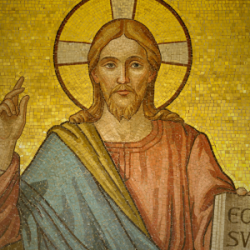Welcome readers! Please subscribe through the button on the right.
(Read this series from the beginning at Part 1 and Part 2.)

For example, in Latin liberation theology we encounter a preferential option for the poor, especially people of color around the world. Black liberation theology offers a preferential option for people who are Black. Feminist liberation theology gives us a preferential option for those who are not men. Womanist liberation theology points to a preferential option for Black women, their families and communities. In environmental liberation theology, we encounter a preferential option for the planet, and in queer liberation theology, we encounter a preferential option for LGBTQ people. In a liberatory theology of disability, we encounter a preferential option for people living with disabilities. As a result, in each of these examples we encounter a rich diversity of focuses, assumptions and scope.
Each of these theologies attempts to prioritize those being harmed by their society in a way that parallels Jesus’ ethical practice, the practice being defended by the Jesus of the gospels in the stories we’re reading this week. Those benefited in this society, especially if their benefits come at the expense of others, will always push back against this. It is this pushback that we are seeing Jesus respond to in this week’s stories.
The word “option” in the phrase “preferential option” doesn’t mean this is optional for Jesus followers. Option means that every day we can choose to follow Jesus, to practice preferring those being harmed rather than those benefiting from their harm.
This is a deep theme in the Jewish wisdom and prophetic traditions:
The LORD works vindication and justice for all who are oppressed. (Psalms 103:6)
But let justice roll down like waters, and righteousness like an everflowing stream. (Amos 5:24)
In a society that privileges certain ones from pushing others to the edges and undersides of their society, we have to practice a preferential option for those being marginalized to bring things back into balance. This is a way to remediate the harmful preference that is already being shown.
Parts of the early Jesus movement also valued this practice. Consider this passage from the book of James:
My brothers and sisters, do you with your acts of favoritism really believe in our glorious Lord Jesus Christ? For if a person with gold rings and in fine clothes comes into your assembly, and if a poor person in dirty clothes also comes in, and if you take notice of the one wearing the fine clothes and say, “Have a seat here, please,” while to the one who is poor you say, “Stand there,” or, “Sit at my feet,” have you not made distinctions among yourselves, and become judges with evil thoughts? Listen, my beloved brothers and sisters. Has not God chosen the poor in the world to be rich in faith and to be heirs of the kingdom that he has promised to those who love him? But you have dishonored the poor. Is it not the rich who oppress you? Is it not they who drag you into court? Is it not they who blaspheme the excellent name that was invoked over you? (James 2:1-7, emphasis added.)
All of this calls to me to continually reassess my own practice. Who is it that I’m practicing a preferential option for? Our society practices privilege. Who does our society disenfranchise or exclude? When there are efforts to bring things into balance, whose voices speak against favoring those suffering harm?
The recent debate over student loan forgiveness is just an example. I don’t think Biden’s plan goes far enough. I’m thankful for what it does do; it’s a good start. But anyone who understands the predatory nature of student loans understands that some people and companies are benefitting by harming students financially. We need a preferential option now to restore balance. It never ceases to surprise me when I hear people in my circle of friends who are against such efforts. I’m thankful that two out of three folks in our society see the wisdom in a preferential option for people in debt. And we can do even more.
Who is the Jesus story calling you to practice a preferential option for this week?














